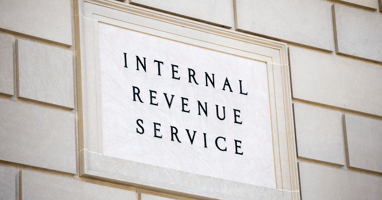10 Key Benefits of Fiscal Sponsorship for Nonprofits and Projects
For many charitable initiatives, navigating the complexities of nonprofit status and administration can be overwhelming. Fiscal sponsorship provides an effective alternative, allowing projects to operate under the umbrella of an established nonprofit while benefiting from tax-exempt status, administrative support, and compliance guidance. Whether you’re launching a new initiative or seeking efficiency for an existing one, fiscal sponsorship offers numerous advantages. Here are the top benefits of fiscal sponsorship for nonprofits and projects.
1. Immediate Tax-Exempt Status
One of the biggest advantages of fiscal sponsorship is the ability to receive tax-deductible donations right away. Since the fiscal sponsor is already a recognized 501(c)(3) organization, sponsored projects can fundraise and accept grants without waiting for IRS approval of their own tax-exempt status.
2. Reduced Administrative Burden
Managing a nonprofit involves significant administrative responsibilities, including accounting, compliance, and legal filings. Fiscal sponsors handle these tasks, allowing project leaders to focus on their mission and programming rather than paperwork.
3. Lower Costs and Increased Efficiency
Establishing and maintaining a nonprofit can be costly, with legal fees, compliance costs, and operational expenses. Fiscal sponsorship reduces these expenses, enabling projects to allocate more resources to their core activities.
4. Access to More Funding Opportunities
Many foundations and grantmakers only provide funding to established 501(c)(3) organizations (i.e. 3-5 years of Form 990 filings, audited financials, etc.). With a fiscal sponsor, projects can access grants, corporate sponsorships, and other funding sources that may not be available to individuals or unregistered groups.
5. Enhanced Credibility and Donor Confidence
Being associated with a reputable fiscal sponsor can enhance a project’s credibility, making it easier to gain trust from donors, partners, and funders. This established trust can lead to greater financial support and stronger community engagement.
6. Financial Oversight and Compliance Support
Fiscal sponsors ensure that funds are managed responsibly and in accordance with legal and tax regulations. This oversight helps projects stay compliant, reducing the risk of financial mismanagement or legal issues. For more complex funding situations (i.e. government grants, sub-awards, etc.), fiscal sponsorship may be a great solution for managing these higher compliance awards.
7. Flexibility to Evolve
Some projects may not need long-term nonprofit status, while others may want to test their impact before committing to forming a 501(c)(3). Fiscal sponsorship offers the flexibility to operate, grow, and determine the best path forward without an immediate legal commitment.
8. Professional Guidance and Support
Many fiscal sponsors provide mentorship, strategic advice, and networking opportunities to help projects thrive. Having access to experienced nonprofit professionals can be invaluable in scaling impact and making informed decisions.
9. Protection from Legal and Financial Liabilities
With a fiscal sponsor managing compliance and finances, project leaders and board members are shielded from many legal and financial risks associated with running an independent nonprofit. This protection can be especially beneficial for grassroots and emerging initiatives.
10. Streamlined Operations for Greater Focus on Mission
By outsourcing administrative and financial tasks to a fiscal sponsor, project leaders can concentrate on their mission-driven work—whether that’s providing community services, running advocacy campaigns, or launching creative initiatives.
Is Fiscal Sponsorship Right for Your Project?
If you are considering fiscal sponsorship, it’s important to assess your project’s goals, funding needs, and long-term plans. For many organizations, fiscal sponsorship provides a practical and efficient way to maximize impact while minimizing administrative challenges.
By leveraging the benefits of a fiscal sponsor, nonprofits and projects can achieve their goals more efficiently and focus on what truly matters: creating meaningful change.




